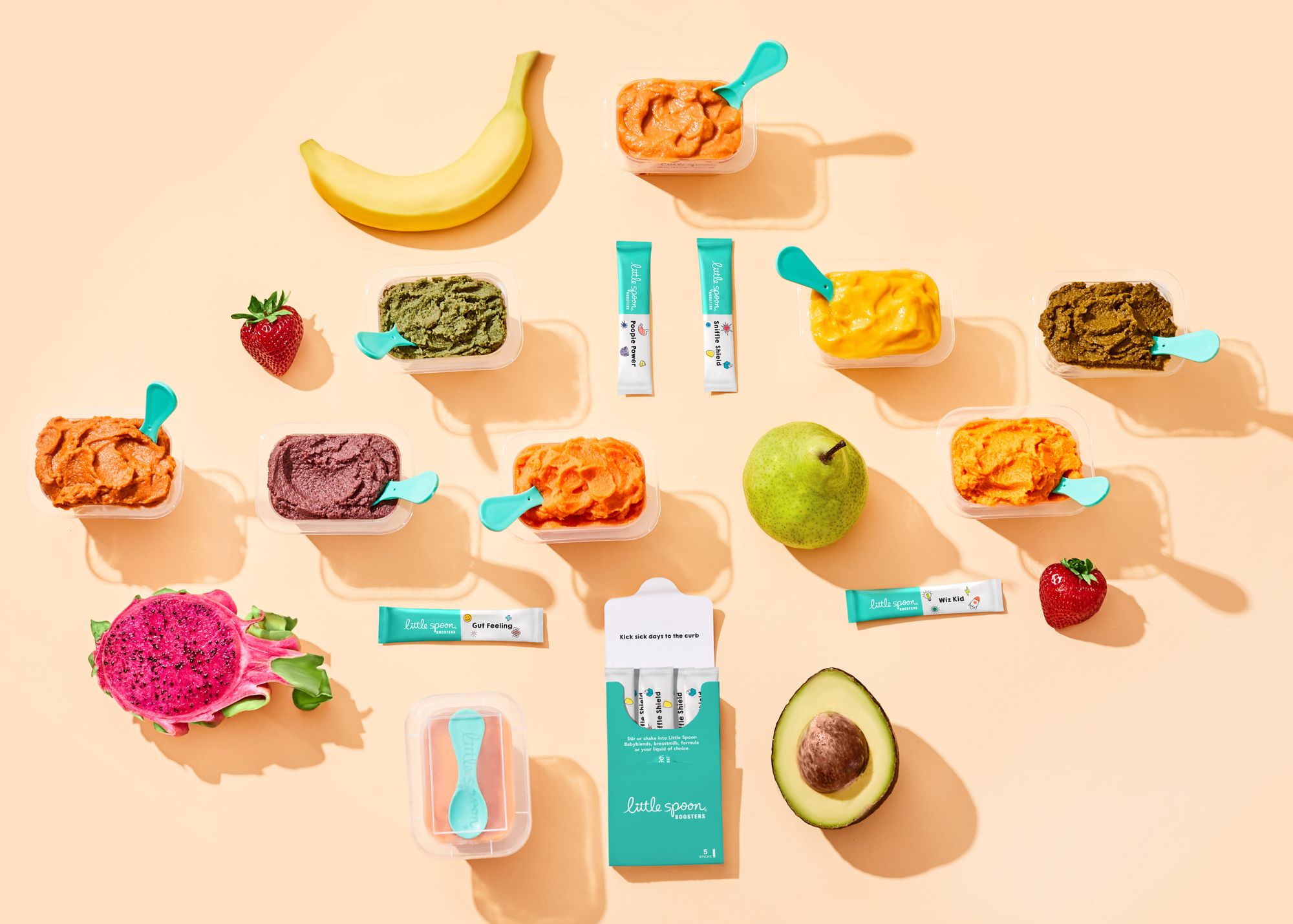Let’s face it: being a parent is a full-time, high-intensity job, which is why most people will make a shortcut to make their lives easier if an opportunity presents itself. Just take baby food pouches.
While a convenient and popular solution for time-strapped parents, they can also be a nightmare for our environment. Most plastic squeezy packs can’t be recycled through standard curbside recycling programs and instead need to be mailed into an “upcycling” program – something that busy Moms and Dads most likely won’t end up doing.
As well as this, many baby food jars and pouches on the market are categorized as ‘commercially sterile’, which means they’ve been thermally processed to remove microorganisms that grow in food in non-refrigerated conditions. This food classification means it can sit on a shelf for years and still be viable to be sold to the public.
Knowing all this information didn’t sit right with Lisa Barnett, Angela Vranich, Michelle Muller and Ben Lewis. So they decided to do something about it and co-found Little Spoon, a baby food company that does things differently.
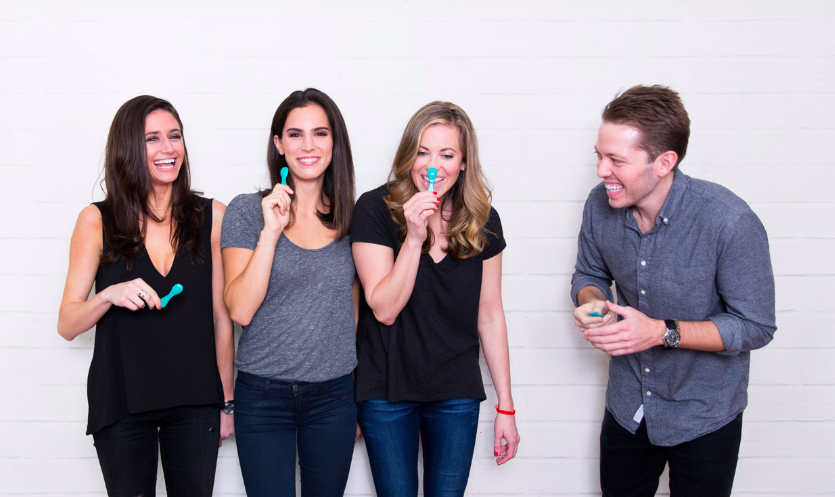
“Long story short, we all come together around this shared passion to disrupt a very sleepy industry and demand better for parents everywhere,” co-founder, president and chief marketing officer Lisa Barnett says.
“Funnily enough, Little Spoon was founded because of one of those rare, serendipitous moments when multiple people all over the country were thinking about how to best solve a huge, systemic problem at the same time: how to keep your kid healthy without sacrificing quality or breaking your bank.
“At the time of the idea’s inception, I was working in venture capital and spending a lot of time working with companies that were solving chronic health issues like diabetes and heart disease, illnesses people encounter in later years.
“I started to realize the critical need for high quality, nutritious and fresh food from the beginning of life — and after digging into the baby food category and talking to my sister, who just had her first baby, I quickly found that the grocery store brands just simply weren’t good enough – in fact, the baby food sold in the grocery store is often times older than the baby eating it!”
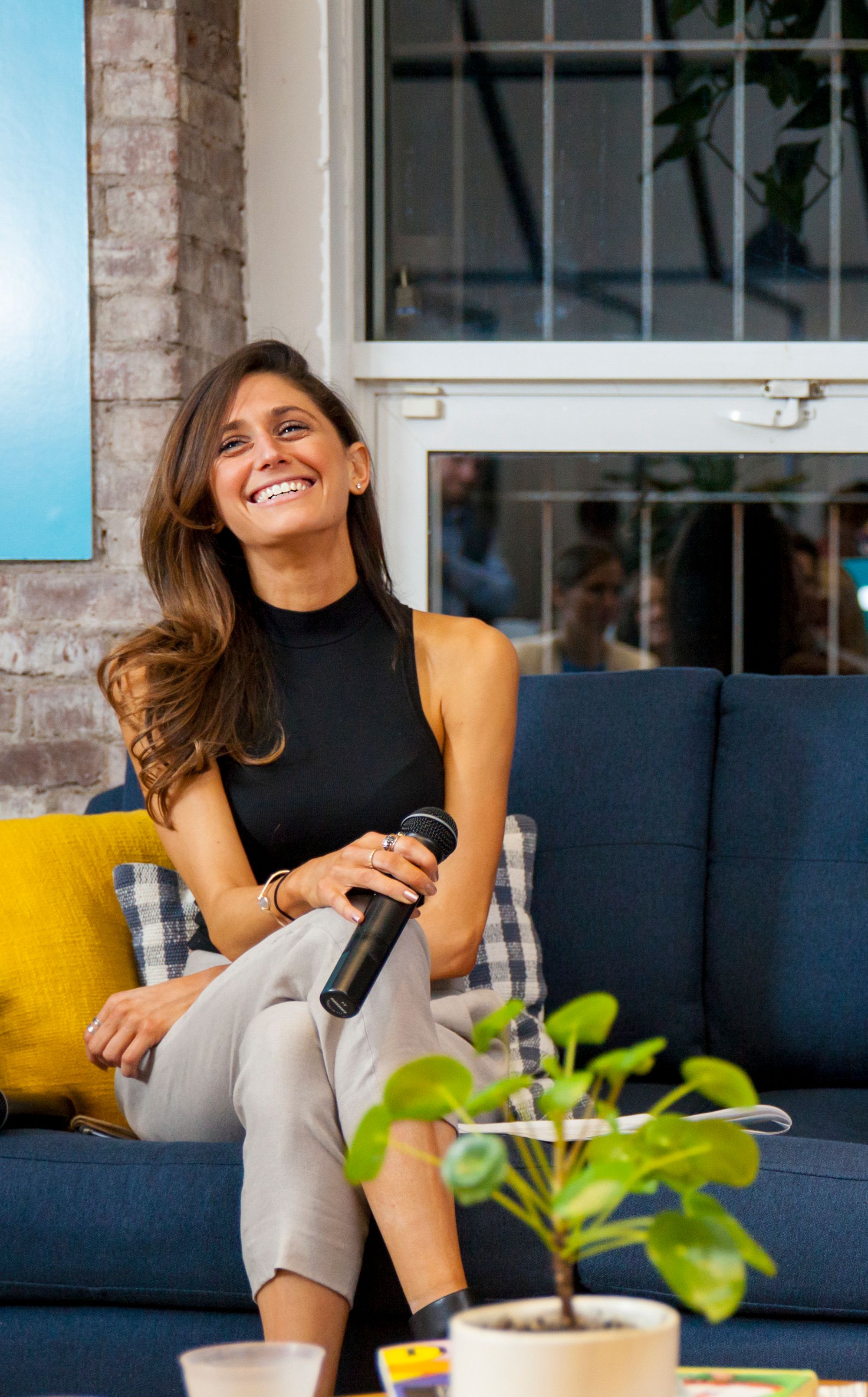
Little Spoon’s baby food, kid’s meals and vitamins point of difference is that they’re made with fresh, organic and cold-pressed ingredients and no preservatives, additives or added sugar.
While this isn’t revolutionary when it comes to adult food in this day and age, baby food is an untapped category for food innovation and often tends to be processed and preservative-packed.
“I believe that there aren’t enough brands in the baby and children space that are meeting the needs of today’s parent. Our solution is to empower our community with the ability to provide their children with high quality, nutritious and fresh food without the time and effort that it would otherwise require,” Lisa says.
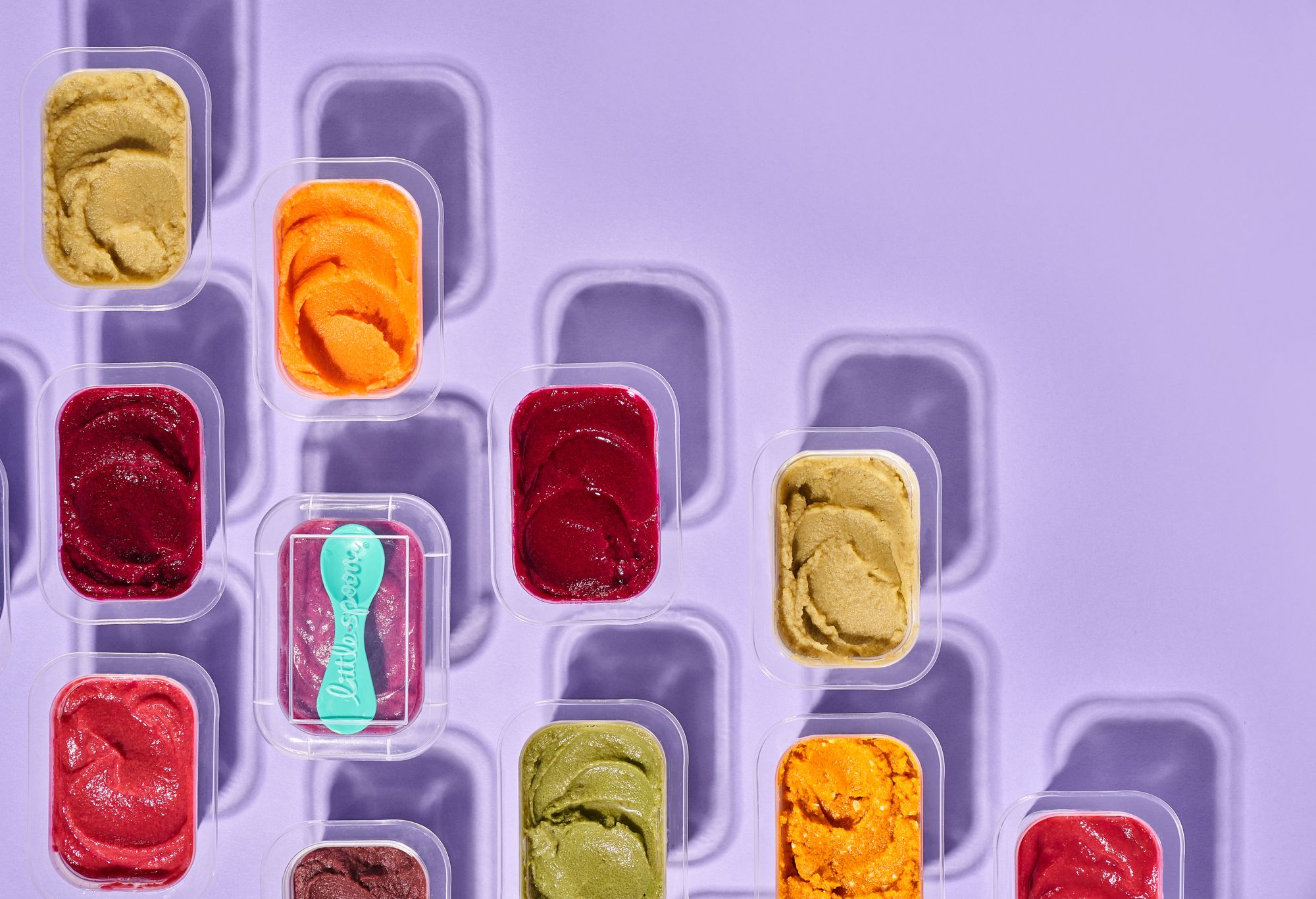
“Unlike other fresh baby food products, we cold-press all of our blends, which is the same tech many juicing companies use. This allows us to eliminate any harmful bacteria that can be naturally found in whole fruits and veggies and also helps us extend the life of our fresh product to 14 days so we can ship bi-monthly.”
Variety is the spice of life, so Little Spoon also rotates through over 100 organic, non-GMO ingredients and menu items throughout the year to introduce babies to as many flavors and textures as possible.
Seeing as Little Spoon was named one of Time’s Best Inventions of 2018, it seems as though the brand is onto something good.
Sustainability moves
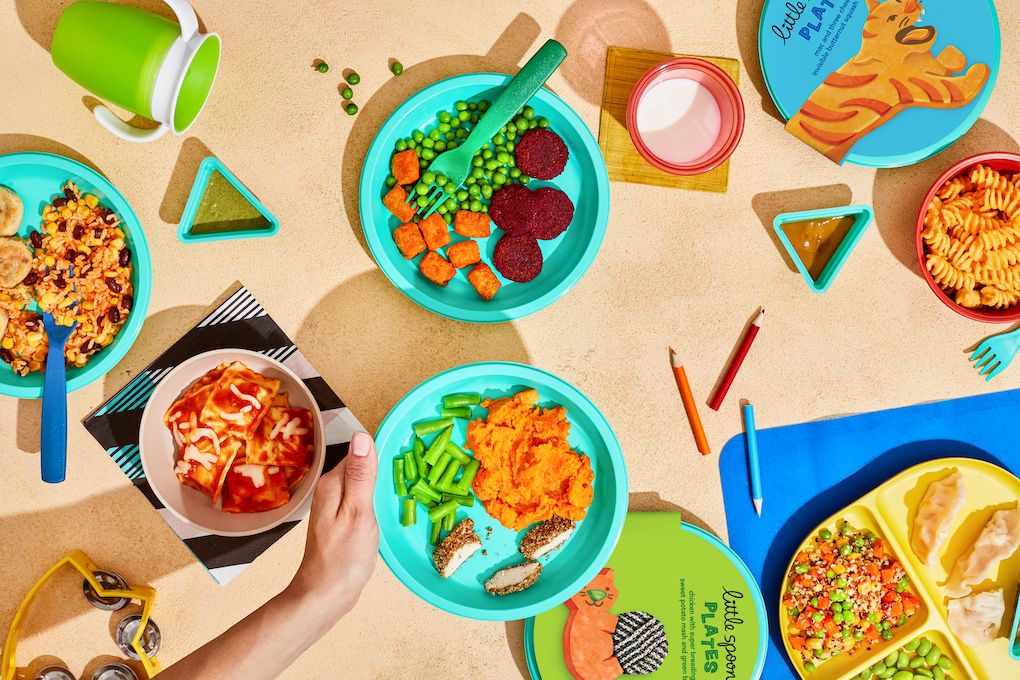
Lisa says Little Spoon is working hard to be as eco-conscious a brand as possible, and is always looking to develop its initiatives further.
Some of the moves in the sustainability space it’s making include sourcing ingredients that are ‘offcuts’ that would be rejected by grocery stores because of their size or appearance, shipping bi-monthly instead of weekly to limit the company’s carbon footprint, using packaging that is 100% curbside recycling friendly, using upcycled fabric scraps as insulation in its boxes and biodegradable materials for its cooling packs and using plates in its kid’s meals that can be kept and reused by parents.
“Shipping less frequently allows us to offer our customers an even more accessible price point, therefore making fresh, organic food available to even more families across the US. We know that our customers appreciate having less waste to deal with each month and it allows them less stress and more flexibility in planning out their calendars each month,” Lisa says.
But she says it’s also challenging balancing sustainability with consumer and business needs.
“Our center of gravity has alway been our customer, and so our philosophy and hierarchy of decision making follows suit. We start with our customers’ needs and pain points and then I firmly believe it’s our job as entrepreneurs to cleverly figure out how we can solve those needs in a sustainable way that is also good for business.”
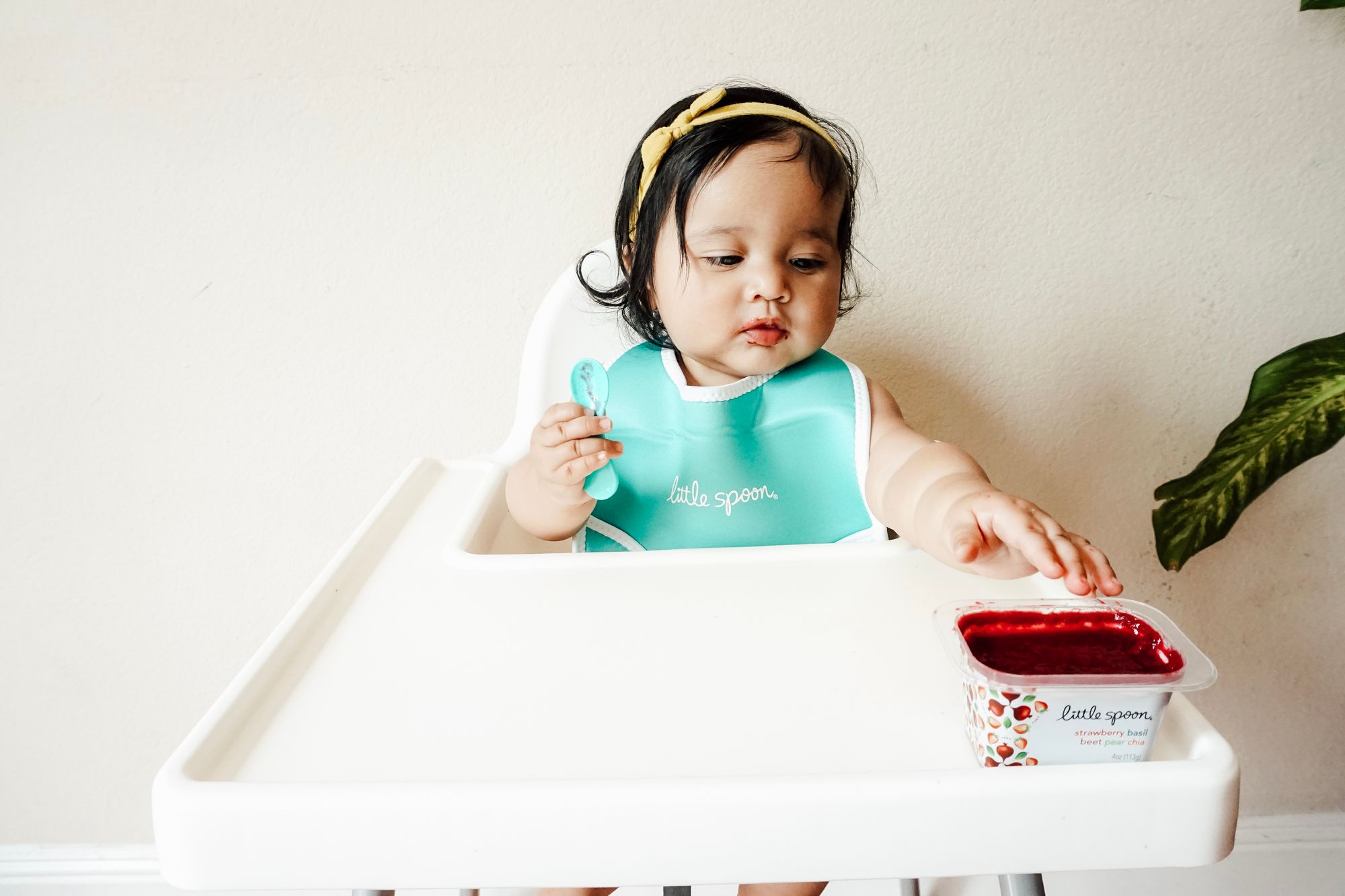
Her advice to other businesses looking to improve on the sustainability front is to accept that it's a process you embark on, not going all in or nothing at all.
“You may not always be the most sustainable brand out there, but that shouldn’t stop you from trying to do better in any big or small way,” Lisa says.
She says it’s important to find partners that align with your sustainability goals.
“For example, can you focus on working with suppliers that are also working towards more and more sustainable practices? Can you prioritize partnerships with fellow brands or individuals that share your same philosophy?
“No one company – especially a smaller start-up – can do this alone, but if we focus on where we can amplify our sustainability efforts and voices, we will have a much bigger impact.”
Is this normal?

Alongside creating fresh food for young ones, Little Spoon has created a platform called Is This Normal where parents can submit questions and connect with one another to combat the confusion, shame, loneliness and guilt that can happen while raising a child.
Is This Normal builds on Little Spoon’s business purpose of helping families and helps the brand validate the experience of modern-day parents when they start this often-challenging journey.
“What gets me up every morning is our mission to make life easier for this generation of parents, who live life differently from any generation that has come before them," Lisa says.
"New parents today are primarily dual income households and individuals who despite having children, maintain their personal ambitions and have no plans to slow down in their professional and personal aspirations.
“If we’re doing our jobs right, we’ll continue to trail blaze a path for parents – especially mothers – to have more win:wins in their lives. Women shouldn’t have to enter this life stage with hesitation or fear, because they have all the support and resources they need, from the grocery store aisle through the federal government (hello, paid family leave) to be an individual and a parent.”
As for what's on the horizon for Little Spoon, Lisa says in the face of the Covid-19 pandemic, the business is working tirelessly to speed up timelines on product launches to meet the needs of parents across the US. It recently launched its Plates range, which are meals for toddlers and kids that can be heated and eaten.
She says Little Spoon also wants to take its meals worldwide eventually. If you're outside the US – watch this space!
Follow Little Spoon’s journey on Instagram here and Facebook here.

